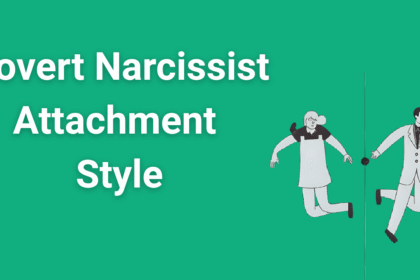Covert narcissist traits? your therapist won't tell you – this phrase captures the frustration of countless survivors who sit in therapy sessions feeling unheard, misunderstood, and questioning their own sanity. After working with thousands of survivors through NarcissismExposed.com as a Certified Narcissistic Abuse Specialist, I can tell you that many well-intentioned therapists are simply not equipped to recognize the sophisticated manipulation tactics of covert narcissists, leaving survivors feeling more confused and invalidated than before they sought help.
The devastating reality is that covert narcissists are masters of deception who can fool even trained professionals, presenting themselves as sensitive, wounded individuals while systematically destroying their victims' sense of reality. Unlike their overt counterparts who display obvious grandiosity and aggression, covert narcissists operate through subtle manipulation, passive-aggression, and emotional manipulation that can be nearly impossible to detect without specialized training.
What makes this particularly damaging is that when therapists don't recognize these patterns, they often inadvertently validate the narcissist's victim narrative while questioning the survivor's perceptions. This professional invalidation can be more damaging than the original abuse because it comes from someone the survivor trusted to help them heal.
The truth is that there are specific covert narcissist traits your therapist won't tell you about – not because they're withholding information, but because they simply don't recognize them. Understanding these hidden patterns is crucial for your healing and validation of your experience.
Why Most Therapists Miss Covert Narcissistic Abuse
Before we explore the specific covert narcissist traits your therapist won't tell you about, it's essential to understand why even trained professionals often fail to recognize these patterns. This isn't about incompetent therapists – it's about the sophisticated nature of covert narcissistic manipulation and gaps in professional training.
Most therapeutic training focuses on overt narcissistic presentations – the grandiose, obviously self-centered individuals who make their narcissism apparent through dramatic displays of entitlement and superiority. Covert narcissists, however, present as wounded, sensitive, and often victimized individuals who generate sympathy rather than suspicion.
The Professional Blind Spots
Training Gap in Subtle Manipulation: Most therapists receive limited training in recognizing covert manipulation tactics. They're taught to look for obvious signs of abuse rather than the subtle emotional manipulation that characterizes covert narcissism.
Sympathy for the “Wounded” Narcissist: Covert narcissists often present as highly sensitive, traumatized individuals who have been “misunderstood” or “mistreated” by their partners. This presentation triggers therapists' natural compassion and desire to help the seemingly wounded person.
Lack of Specialized Narcissistic Abuse Training: While therapists understand personality disorders in general, many lack specific training in how narcissistic abuse manifests in relationships and the unique trauma patterns it creates.
Focus on Individual Pathology: Traditional therapy often focuses on individual mental health issues rather than recognizing systemic patterns of abuse and manipulation within relationships.
Belief in Universal Capacity for Growth: Many therapeutic approaches assume that all individuals have the capacity for genuine change and growth, which can lead to unrealistic expectations about narcissistic personality disorder treatment outcomes.
According to research published in the Journal of Personality Disorders, even experienced clinicians struggle to accurately identify covert narcissistic traits in initial assessments, with many covert narcissists being misdiagnosed with depression, anxiety, or other conditions that mask their underlying personality disorder.
Covert Narcissist Traits Your Therapist Won't Tell You: The Hidden Patterns
Understanding the specific covert narcissist traits your therapist won't tell you requires examining the subtle manipulation tactics that even trained professionals often miss or misinterpret. These patterns are designed to fly under the radar while systematically eroding the victim's sense of reality and self-worth.
The Victim-Savior Complex
One of the most overlooked covert narcissist traits your therapist won't tell you about is their sophisticated victim-savior complex. Covert narcissists position themselves as both wounded victims who need rescuing and as saviors who uniquely understand others' pain. This dual role creates powerful emotional bonds while establishing their superiority.
This manifests as:
- Constantly sharing stories of how they've been mistreated by others
- Positioning themselves as the only person who truly understands your pain
- Offering help and support that comes with hidden expectations and conditions
- Creating dramatic scenarios where they need to be rescued or validated
- Taking credit for “saving” or “healing” others through their unique insight
Why therapists miss this: This behavior appears empathetic and caring, triggering positive responses from professionals who see someone who seems deeply compassionate and self-aware.
The manipulation: The covert narcissist uses this dynamic to create trauma bonds, making their victims feel special and understood while establishing dependency and control.
Emotional Hijacking Through Manufactured Crises
Another crucial pattern among covert narcissist traits your therapist won't tell you is their ability to manufacture emotional crises that hijack attention and sympathy. These aren't genuine emergencies but carefully orchestrated situations designed to maintain centrality in others' lives.
This includes:
- Creating health scares or mental health crises during important events in others' lives
- Timing emotional breakdowns to coincide with their victim's achievements or milestones
- Developing sudden “insights” about their trauma that require immediate attention and support
- Using anniversaries of past traumas to demand special treatment and accommodation
- Creating conflicts or emergencies that force others to choose between them and other responsibilities
Why therapists miss this: The crises appear genuine and the emotional distress seems real, leading professionals to respond with appropriate therapeutic support rather than recognizing the pattern of manipulation.
The manipulation: These manufactured crises ensure the covert narcissist remains the center of attention while preventing others from developing independent interests or relationships.
The Intellectual Superiority Mask
A particularly insidious aspect of covert narcissist traits your therapist won't tell you involves their use of intellectual or spiritual superiority disguised as humility. They present themselves as deeper thinkers, more spiritually evolved, or more emotionally intelligent than others while maintaining a facade of modesty.
This appears as:
- Subtle corrections of others' perspectives or understanding
- Sharing “profound” insights that highlight their superior emotional or spiritual development
- Using therapeutic language or spiritual concepts to manipulate and control
- Positioning themselves as more enlightened or evolved than their victims
- Dismissing others' experiences as less valid or sophisticated than their own
Why therapists miss this: This behavior appears as genuine self-reflection and spiritual growth, qualities that therapists want to encourage and support.
The manipulation: The covert narcissist uses intellectual or spiritual superiority to invalidate others' experiences while maintaining their position as the authority on emotional and spiritual matters.
Passive-Aggressive Punishment Systems
One of the most damaging covert narcissist traits your therapist won't tell you about is their sophisticated passive-aggressive punishment systems. Unlike overt narcissists who punish directly through rage or obvious withdrawal, covert narcissists use subtle withdrawal, silent treatment, and emotional unavailability as punishment tools.
This includes:
- Subtle emotional withdrawal when their victim doesn't meet their expectations
- Using illness or fatigue as weapons to avoid responsibility or create guilt
- Withholding affection or attention as punishment for perceived slights
- Creating an atmosphere of walking on eggshells through unpredictable moods
- Using their “sensitivity” to make others responsible for their emotional regulation
Why therapists miss this: The behavior appears as genuine emotional sensitivity or mental health struggles rather than calculated manipulation tactics.
The manipulation: These punishment systems train victims to constantly monitor and adjust their behavior to avoid triggering the covert narcissist's withdrawal or emotional unavailability.
The Therapeutic Gaslighting: When Professional Help Becomes Harmful
Understanding covert narcissist traits your therapist won't tell you becomes crucial when considering how therapeutic settings can inadvertently become spaces of further invalidation and gaslighting for survivors. This isn't intentional harm, but the result of professionals not recognizing covert narcissistic manipulation patterns.
Common Therapeutic Responses That Invalidate Survivors
When therapists don't recognize covert narcissist traits, they often respond in ways that further harm survivors by validating the narcissist's victim narrative while questioning the survivor's perceptions.
Problematic therapeutic responses include:
“Both People Contribute to Relationship Problems”: This assumes both parties are capable of genuine self-reflection and change, which isn't true with personality disorders.
“Have You Considered Their Perspective?”: This places the burden on the survivor to understand their abuser's motivations rather than recognizing the systematic nature of the abuse.
“They Seem to Really Care About You”: This response to the covert narcissist's performed concern validates their manipulation while dismissing the survivor's lived experience.
“Maybe You're Being Too Sensitive”: This gaslighting response reinforces the covert narcissist's narrative that their victim is overly reactive or emotionally unstable.
“Focus on Your Own Healing”: While well-intentioned, this response can minimize the ongoing nature of covert narcissistic abuse and the need for protective strategies.
The Couples Therapy Trap
One of the most dangerous scenarios involving covert narcissist traits your therapist won't tell you is how couples therapy can become a weapon in the covert narcissist's arsenal. These individuals excel in therapeutic settings, using them as stages for their victim performance while gathering ammunition against their partners.
In couples therapy, covert narcissists typically:
- Present as the more emotionally aware and willing partner
- Use therapy language to manipulate and control the narrative
- Cry or display vulnerability to gain the therapist's sympathy
- Subtly blame their partner for all relationship problems
- Use therapy sessions to gather information about their partner's vulnerabilities
- Position themselves as the victim of their partner's “emotional instability”
The danger: Therapists who don't recognize these patterns often side with the covert narcissist, providing professional validation for their victim narrative while further traumatizing the actual victim.
Professional Validation: What Survivors Need to Hear
As a specialist in narcissistic abuse recovery, I want to provide the professional validation that survivors of covert narcissistic abuse desperately need but often don't receive from their therapists. Understanding these covert narcissist traits your therapist won't tell you is essential for your healing and recovery.
Your Experience Is Valid
The confusion, exhaustion, and self-doubt you feel are normal responses to abnormal behavior. Covert narcissistic abuse is designed to be subtle and confusing, making you question your own perceptions and reactions. The fact that your therapist doesn't recognize these patterns doesn't invalidate your experience.
Your reactions to covert narcissistic abuse are appropriate responses to inappropriate behavior. The anxiety, depression, and hypervigilance you experience are trauma responses to systematic emotional manipulation and psychological abuse.
The difficulty in explaining your experience to others is a feature, not a bug, of covert narcissistic abuse. These individuals are skilled at maintaining a positive public image while privately engaging in emotional manipulation and control.
The Healing Process Requires Specialized Understanding
Recovery from covert narcissistic abuse requires therapists who understand the specific patterns and impacts of this type of manipulation. Not all therapists are equipped to handle these cases, and finding the right professional support is crucial for your healing.
Look for therapists who:
- Have specific training in narcissistic abuse and personality disorders
- Understand the concept of covert narcissism and its impact on relationships
- Don't immediately suggest couples therapy or reconciliation
- Validate your experience without requiring you to see your abuser's perspective
- Focus on your safety and healing rather than understanding your abuser's motivations
Red flags in therapeutic relationships:
- Therapists who suggest you're equally responsible for the relationship problems
- Professionals who seem charmed by your abuser's presentation
- Therapists who minimize your experiences or suggest you're being too sensitive
- Professionals who don't understand the difference between healthy and abusive relationships
- Therapists who focus on your abuser's “potential” rather than your current reality
Breaking Free: Recognition and Recovery Strategies
Understanding covert narcissist traits your therapist won't tell you is the first step toward breaking free from the confusion and self-doubt that characterizes this type of abuse. Recovery requires both professional support and personal recognition of the patterns you've experienced.
Documenting Your Experience
One of the most important steps in recovery is documenting your experiences in detail. Covert narcissistic abuse is subtle and often dismissed or minimized by others, making detailed records essential for your own validation and potential professional support.
Documentation should include:
- Specific examples of manipulation tactics and their impact on you
- Patterns of behavior over time rather than isolated incidents
- Your emotional and physical responses to interactions with the covert narcissist
- Examples of how they present differently in public versus private settings
- Instances where they used your vulnerabilities against you
This documentation serves several purposes:
- Validates your own experience when you begin to doubt yourself
- Provides concrete examples for therapists who understand covert narcissism
- Helps you recognize patterns and predict future behavior
- Supports your healing process by externalizing the abuse
Building Your Support Network
Recovery from covert narcissistic abuse often requires building a support network of people who understand these dynamics. This may include specialized therapists, support groups, and other survivors who can validate your experience.
Effective support includes:
- Therapists trained in narcissistic abuse and trauma recovery
- Support groups specifically for survivors of narcissistic abuse
- Friends and family members who understand the nature of covert manipulation
- Online communities where you can share experiences with other survivors
- Books and resources written by specialists in narcissistic abuse recovery
Avoid support from:
- People who haven't experienced narcissistic abuse and don't understand its complexity
- Therapists who don't believe in or understand personality disorders
- Family members or friends who are charmed by the covert narcissist's presentation
- Support groups that focus on general relationship issues rather than abuse
- Anyone who suggests you should “work things out” or “try harder”
The Path Forward: Healing and Protection
Understanding covert narcissist traits your therapist won't tell you is empowering because it provides clarity about your experience and validates your perceptions. However, this knowledge is just the beginning of your healing journey.
Developing Protective Strategies
Recovery involves developing strategies to protect yourself from future covert narcissistic manipulation while healing from the trauma you've already experienced.
Protection strategies include:
- Learning to trust your instincts when something feels “off” about someone's behavior
- Recognizing the early warning signs of covert narcissistic manipulation
- Developing strong boundaries and the ability to maintain them under pressure
- Building self-esteem that doesn't depend on others' validation or approval
- Creating support systems that validate your perceptions and experiences
Red flags to watch for in future relationships:
- People who seem “too good to be true” or who love-bomb excessively
- Individuals who position themselves as uniquely understanding or special
- Partners who create drama or crises that require your constant attention
- People who use intellectual or spiritual superiority to invalidate your experiences
- Individuals who seem to have a victim story for every situation
Healing the Trauma of Invalidation
One of the most damaging aspects of covert narcissistic abuse is how it makes you doubt your own perceptions and experiences. Healing requires rebuilding trust in your own judgment and developing confidence in your ability to recognize healthy versus unhealthy behavior.
Healing strategies include:
- Working with trauma-informed therapists who understand narcissistic abuse
- Practicing self-compassion and challenging negative self-talk
- Rebuilding your sense of identity separate from the narcissistic relationship
- Developing healthy relationships based on mutual respect and genuine care
- Learning to celebrate your strengths and achievements without needing external validation
Key Takeaways: Understanding Covert Narcissistic Manipulation
Understanding covert narcissist traits your therapist won't tell you is crucial for survivors who need validation of their experiences and clarity about the subtle manipulation they've endured.
Remember these essential insights:
- Covert narcissists are masters of deception who can fool even trained professionals through their victim-savior complex and performed vulnerability
- Many therapists lack specialized training in covert narcissistic abuse and may inadvertently validate the narcissist while questioning the survivor
- The confusion and self-doubt you experience are normal responses to systematic emotional manipulation and psychological abuse
- Your perceptions and experiences are valid regardless of whether others recognize or understand the abuse you've endured
- Recovery requires specialized support from professionals who understand covert narcissistic abuse patterns
- Healing involves rebuilding trust in your own judgment and developing protective strategies for future relationships
The path forward includes:
- Seeking therapists trained in narcissistic abuse and personality disorders
- Documenting your experiences to validate your own perceptions
- Building support networks with people who understand covert manipulation
- Developing protective strategies for recognizing and avoiding future abuse
- Healing the trauma of invalidation and rebuilding your sense of self
Understanding these covert narcissist traits your therapist won't tell you isn't about blame or criticism of the therapeutic profession. When survivors search for this information, they're seeking validation for experiences that have been minimized, misunderstood, or dismissed by well-intentioned professionals who simply lack the specialized training needed to recognize these subtle manipulation patterns.
Your confusion about your experience is valid, your perceptions are accurate, and your need for specialized support is legitimate. The healing journey requires professionals who understand the sophisticated nature of covert narcissistic abuse and can provide the validation and specialized treatment necessary for recovery.
Moving forward, trust your instincts, seek specialized support, and remember that your experience matters regardless of whether others recognize or understand the abuse you've endured. The covert narcissist traits your therapist won't tell you about are real, their impact is significant, and your healing is possible with the right support and understanding.
Frequently Asked Questions
Why don't most therapists recognize covert narcissistic abuse?
Most therapists receive limited training in recognizing subtle manipulation tactics and personality disorders in relationship contexts. Covert narcissists present as wounded, sensitive individuals who generate sympathy rather than suspicion, making them particularly difficult to identify. Additionally, traditional therapeutic training focuses on individual pathology rather than recognizing systemic patterns of abuse and manipulation within relationships. Many therapists also operate under the assumption that all individuals have the capacity for genuine change and growth, which can lead to unrealistic expectations about personality disorder treatment outcomes.
Should I tell my therapist I think my partner is a covert narcissist?
Yes, but be prepared for varying responses depending on your therapist's training and experience with personality disorders. Bring specific examples of behavior patterns rather than just the label, and focus on how these behaviors impact you. If your therapist seems dismissive, doesn't validate your experiences, or suggests couples therapy immediately, consider seeking a second opinion from a professional who specializes in narcissistic abuse. Your safety and healing should be the priority, not preserving a relationship with someone who may be causing you harm.
Is couples therapy safe with a covert narcissist?
Couples therapy is generally not recommended with personality-disordered individuals, including covert narcissists, as they often use therapy sessions as opportunities to manipulate both their partner and the therapist. Covert narcissists excel at presenting as the more emotionally aware partner while subtly blaming their victim for relationship problems. They may use therapy language to manipulate, gather information about their partner's vulnerabilities, and gain professional validation for their victim narrative. If you're already in couples therapy with a covert narcissist, consider individual therapy with a specialist in narcissistic abuse instead.
How do I find a therapist who understands covert narcissism?
Look for therapists who specifically mention training in personality disorders, narcissistic abuse, or trauma recovery on their websites or profiles. Ask potential therapists directly about their experience with covert narcissism and whether they understand the difference between healthy relationship conflicts and systematic abuse. Red flags include therapists who immediately suggest couples therapy, don't believe in personality disorders, or seem to minimize your experiences. Consider seeking referrals from domestic violence organizations or narcissistic abuse support groups, as they often maintain lists of informed professionals.
What if my therapist says I'm being too sensitive or paranoid?
If your therapist suggests you're being too sensitive or paranoid about clearly manipulative behavior, this is a significant red flag that they may not understand covert narcissistic abuse. Your perceptions and emotional responses are valid data that should be explored, not dismissed. Consider seeking a second opinion from a therapist who specializes in narcissistic abuse or trauma recovery. Remember that your experiences matter regardless of whether others recognize or understand them, and you deserve professional support that validates rather than questions your reality.
Can covert narcissists change with therapy?
While therapy can help covert narcissists develop better behavioral control and social skills, the underlying personality structure and lack of genuine empathy typically remain unchanged. They may become more skilled at appearing empathetic or remorseful, but these improvements are often performative rather than authentic. The neurological differences that contribute to narcissistic personality disorder are not easily addressed through traditional therapeutic approaches. Focus on your own healing and protection rather than hoping for their transformation, as this hope often keeps survivors trapped in cycles of disappointment and continued abuse.
How do I heal from the invalidation I experienced from my therapist?
Healing from therapeutic invalidation requires finding a trauma-informed therapist who understands narcissistic abuse and can validate your experiences. Process the additional trauma of not being believed or understood by someone you trusted to help you. Remember that your previous therapist's lack of understanding doesn't invalidate your experiences – it reflects gaps in their training rather than problems with your perceptions. Consider joining support groups for survivors of narcissistic abuse where you can connect with others who understand your experience and provide mutual validation.






